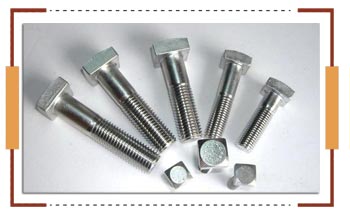Understanding the Manufacturing Process of Inconel Fasteners: A Guide for Buyers
Inconel fasteners are highly sought after in industries that require exceptional performance in extreme temperature and corrosive environments. These fasteners, made from nickel-chromium-based alloys, offer excellent strength, resistance to oxidation, and outstanding corrosion resistance. For buyers looking to source Inconel fasteners, it is important to understand the manufacturing process to ensure the quality and reliability of the products. In this blog, we will provide a comprehensive guide to the manufacturing process of Inconel fasteners.
- Material Selection:
The first step in manufacturing Inconel fasteners is the selection of suitable raw materials. Inconel alloys, such as Inconel 600, 625, and 718, are commonly used due to their excellent mechanical properties and resistance to high temperatures and corrosion. These alloys are typically produced by melting and refining nickel, chromium, and other alloying elements. The composition of the alloy is carefully controlled to ensure consistent material properties. - Forming:
Once the raw material is selected, it undergoes the forming process to shape it into the desired fastener configuration. Inconel fasteners can be manufactured through various forming methods, including hot forging, cold heading, and machining. Hot forging involves heating the material to a high temperature and applying pressure to shape it into the desired form. Cold heading, on the other hand, is a process where the material is deformed at room temperature using dies and punches. Machining is also employed for creating complex fastener shapes or achieving tight tolerances. - Heat Treatment:
Heat treatment plays a critical role in enhancing the mechanical properties of Inconel fasteners manufacturer in India. The heat treatment process involves heating the fasteners to a specific temperature and then cooling them at a controlled rate. This process helps in improving the strength, hardness, and overall durability of the fasteners. Common heat treatment techniques used for Inconel fasteners include solution annealing, precipitation hardening, and age hardening. - Surface Finishing:
Surface finishing is an important step in the manufacturing process of Inconel fasteners, as it enhances the appearance, corrosion resistance, and functionality of the fasteners. Common surface finishing methods include polishing, passivation, and plating. Polishing involves smoothing the surface of the fasteners to improve their aesthetics. Passivation is a chemical process that removes impurities and contaminants from the surface, enhancing the corrosion resistance. Plating involves applying a thin layer of protective coating, such as zinc or nickel, to further enhance the corrosion resistance or provide specific functional properties. - Quality Control:
Quality control is crucial in the manufacturing process of Inconel fasteners to ensure that the final products meet the required specifications and industry standards. Reputable manufacturers employ stringent quality control measures throughout the production process. This includes material testing to verify the composition and properties of the Inconel alloys, dimensional inspection to ensure accurate fastener dimensions, and mechanical testing to evaluate the strength and integrity of the fasteners. Non-destructive testing methods, such as ultrasonic testing and dye penetrant testing, may also be employed to detect any surface or internal defects. - Packaging and Delivery:
Once the manufacturing process is complete, the Inconel fasteners undergo packaging and are prepared for delivery. Proper packaging is essential to protect the fasteners from damage or contamination during transportation and storage. Suppliers typically use protective packaging materials, such as plastic bags, boxes, or crates, to ensure the fasteners reach the buyer in optimal condition. Clear labeling and documentation, including material certificates, test reports, and traceability information, are provided to ensure easy identification and compliance with quality standards.
In conclusion, understanding the manufacturing process of Inconel fasteners is crucial for buyers seeking high-quality and reliable products. By familiarizing themselves with the process, buyers can evaluate suppliers more effectively and ensure that the fasteners meet their specific requirements. From material selection and forming to heat treatment, surface finishing, quality control, and packaging, each step in the manufacturing process contributes to the overall quality and performance of Inconel fasteners. Working with reputable manufacturers who follow robust manufacturing practices and quality control measures is essential to obtaining Inconel fasteners that meet the highest standards of quality and reliability.

Recent Post
What is The Meaning of a Medusa Tattoo?
January 9, 2025
The Meaning of Encanto in Spanish and Origin
January 4, 2025
Equivalent Phrases For “Including But Not Limited To”
December 30, 2024
How To Make Weekend Greetings More Fun?
December 30, 2024
10 Modern Sayings Similar To “Be There Or Be Square”
December 30, 2024








